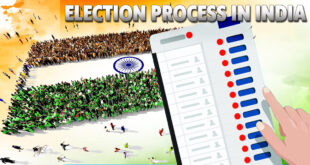The Modi factor looms large in national elections, but States are more competitive The fact that the BJP and its allies won the Assembly election in Maharashtra with a reduced majority and the BJP emerged only as the single largest party in Haryana has raised questions about whether a section of the voters favoured the Opposition due to the performance of the ruling government on the economic front. In a conversation moderated by Srinivasan Ramani , Suhas Palshikar and Irfan Nooruddin discuss how the BJP’s hyper-nationalist campaign on cultural and national security issues did not yield it the same dividends as it did in the 2019 Lok Sabha election. Excerpts: The BJP and Shiv Sena won 161 of the 288 seats in Maharashtra and the BJP won 40 of the 90 seats in Haryana. This performance is being termed as ‘below expectations’. On the one hand, if you look at the BJP alone, it won 63% of the seats it contested with a 44% vote share in those seats in Maharashtra. On the other, its vote share dropped significantly compared to the Lok Sabha election (by 22 percentage points in Haryana). What caused such a dramatic shift in voter preferences so soon? Suhas Palshikar:Let us first put the ‘dramatic’ part in perspective. The BJP contested fewer seats this time. In comparison to 2014, its wins-to-seats-contested ratio has increased quite satisfactorily for it. The BJP’s vote share in the seats it contested is not bad at all. So, there are two parts to the story. One, the expectations created by the party of a sweep in both States. Two, if you make a comparison with the Lok Sabha polls, most major parties would get a reduced vote share at the Assembly level as there are many other players who are not as important during the Lok Sabha polls. Substantively, yes, the BJP has shed a lot of votes compared to the Lok Sabha polls. The BJP will look at the outcome and say it is satisfied with its performance, but in public perception these results will be seen as a setback to the party. Irfan, the BJP suffered defeats in three States late last year, but managed a much higher vote share in the Lok Sabha election. Its vote share reduced again in these Assembly polls. Is there a difference in how voters see State and national elections? Do they associate the state of the economy more with the performance of the State government while choosing who they support at the Central level based on national security and cultural issues? Irfan Nooruddin:Yes, there might be something to that. But we are also at a point in Indian politics with the presence of maybe one of the most successful vote aggregators in Narendra Modi. The Lok Sabha elections of 2014 and 2019 associated the success of the BJP with Mr. Modi’s personality, charisma, popularity. The contrast with his presumed alternative, Rahul Gandhi, is quite dramatic in that at the State level, the contrasts between the BJP and its competitors are not such polar opposites. The difference between a Sharad Pawar or Devendra Fadnavis provides Maharashtra a much more plausible set of alternatives; so does the choice between Manohar Lal Khattar and Bhupinder Hooda in Haryana. This is unlike what was perceived as differences between Mr. Modi and Mr. Gandhi.
Check Also
The Transplantation of Human Organs and Tissues Act (THOTA)
Concept The Transplantation of Human Organs and Tissues Act (THOTA) was enacted in India in …
 Chinmaya IAS Academy – Current Affairs Chinmaya IAS Academy – Current Affairs
Chinmaya IAS Academy – Current Affairs Chinmaya IAS Academy – Current Affairs



